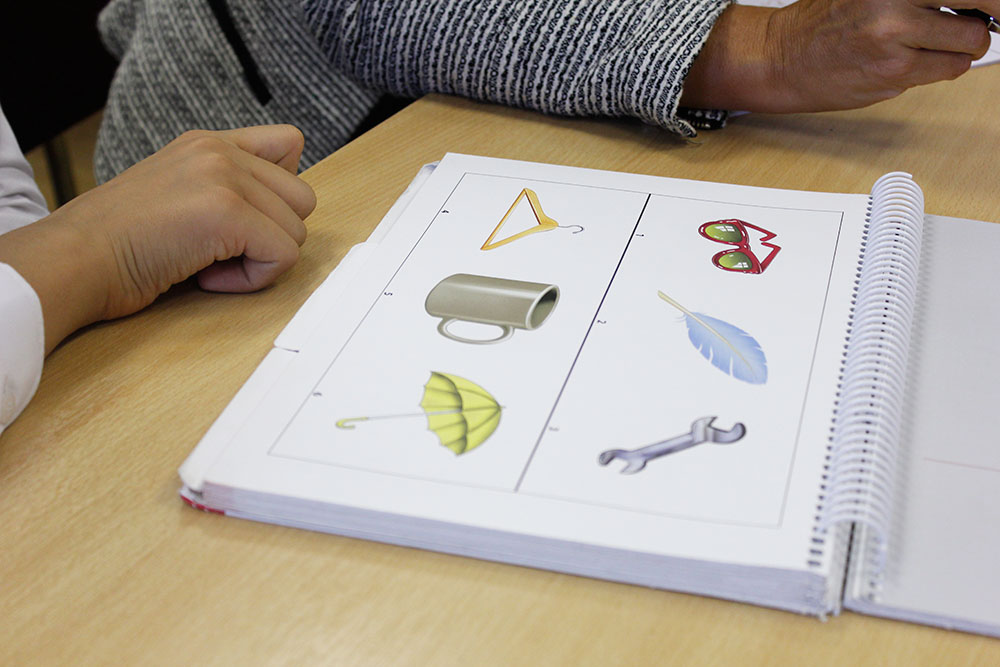

At HSR Psychology our specialist team can help support all involved in the EHC plan process and facilitate everyone working together for the benefit of the child or young person.
EHC plans combine the knowledge and experience of professionals in relation to an individual child or young person.
The purpose of an EHC plan is to make special educational provision to meet the special educational needs of the child or young person, to secure the best possible outcomes for them across education, health and social care and, as they get older, prepare them for adulthood. To achieve this, local authorities use the information from the assessment to:
In addition to the level of need identified through assessments, it is necessary to work out the amount of money an education setting is spending on the individual in a year. If the cost an education setting has to spend in order to meet an individual’s needs through provision exceeds the notional SEND budget then it may be worth considering a psychological assessment to identify an individual’s needs, which may then be used towards an application for an EHC plan. Interventions, external services, specialist services and equipment, dedicated teaching assistant time and training are all services which would help to meet an individual’s needs.
We have experience working with lots of case managers, including:

The application process for an EHC plan can be a stressful and frustrating time for all involved. Our specialist psychologists are here to help during the application process in many ways, including:
We provide immediate access to our specialist team of educational and child psychologists who are committed to producing accurate and EHC reports following a needs assessment.
Through our child-centred and needs-led holistic approach we ensure that the child or young person remains at the centre of any recommendations to support their needs. Support provided by our specialists can extend beyond the statutory requirement of the EHC plan application through interventions or training to support the child or young person’s mental health and wellbeing alongside their educational and physical needs.
Our educational and child psychologists work proactively to decrease the stress for all involved in the EHC plan application process. Applications for EHC plans can be very stressful, and through efficient planning our specialist team intend to make our input as streamlined as possible. Part of the stress during the application process can come from not knowing how best to meet an individual’s needs without additional resources. Our psychologists are able to provide a needs assessment to identify needs and offer advice, training and other services relating to meeting needs throughout the process.
Our educational and child psychologist assessments will take place around your timetable and will make realistic recommendations during the EHC plan process. Using realistic recommendations and SMART objectives to underpin the EHC plan increases the possibility of the plan being accepted when a child or young person has needs which require excess funding to meet. To receive an EHC plan it is necessary for an educational and child psychologist to provide psychological advice and information.
To provide a comprehensive and effective service, we work with your education setting and other professionals during the needs assessment for an EHC plan and application process.
The local authority must gather advice from relevant professionals about the child or young person’s education, health and care needs, desired outcomes and special educational, health and care provision that may be required to meet identified needs and achieve desired outcomes.
In seeking advice and information, the local authority should consider with professionals what advice they can contribute to ensure the assessment covers all the relevant education, health and care needs of the child or young person. Advice and information must be sought as follows:
Psychological advice and information from an educational psychologist who should normally be employed or commissioned by the local authority. The educational psychologist should consult any other psychologists known to be involved with the child or young person
Educational and child psychologists are one of the few professions who are able to carry out cognitive assessments. Cognitive assessments provide detailed information relating to an individual’s learning capacity, including strengths and difficulties.
EHC plans are unique for each child and young person, meaning the needs assessments used vary according to areas of need. The SEND code of practice (2015) categorises the four main areas of need as: cognition and learning; speech, language and communication; physical and sensory; and social emotional and mental health. A thorough understanding of the individual’s needs and background guides the choice of assessments. Our specialist psychologists are able to carry out assessments for each of the four main areas of need.

One of our educational psychologists carrying out a cognitive assessment as part of a needs assessment for an education, health and care (EHC) plan
EHC plans are suitable in all education settings including: early years settings, primary schools, secondary schools, pupil referral units, specialist schools and post-16 education settings.
Needs assessments for EHC plans have many benefits for the student, the education setting and the student’s parents or carers, including:
The positive of using our independent educational and child psychologists is that we are available for swift assessments.
Prior to a needs assessment for an EHC plan the education setting would have put a graduated approach in place. A graduated approach would usually involve quality first teaching, interventions and group work. Throughout the graduated approach at least one cycle of ‘assess, plan, do, review’ will take place to evaluate the impact of the measures put in place. More measures may be added to existing provision and then a further cycle of ‘assess, plan, do, review’ would take place. If schools feel as though they cannot provide for the student with their available resources and find themselves spending, usually, more than £6,000 trying to meet the needs of an individual child then a needs assessment for an EHC plan would be useful. Each child applying for an EHC plan will require an assessment by an educational psychologist.
You can contact us by email or phone to discuss your needs and how we can help you. Our referral process is simple and can be done online or over the phone. Gathering relevant background information through the referral allows us to maximise our input through choosing appropriate assessments and discussing the next steps with you.
The referrer will need to have background information related to the student’s learning or medical history, including any previous reports or interventions if applicable. Having a robust background will help during the application process.
The educational psychologist assessment done as part of the needs assessment for an EHC plan will usually involve the student completing a number of activities, puzzles and questions. Observations may also be used within the needs assessment process, especially with younger children or students with low language abilities.
During the assessment and planning process we will:
We provide immediate access to our team of educational and child psychologists. Our psychologists are efficient, and take a proactive approach in order to speed up the process on their behalf where possible.
After an assessment for an EHC plan we will feedback our findings from the assessment and discuss possible next steps with you. Following the assessment and our findings, you will be able to make an informed decision as to whether you will continue with the EHC plan application. Our team of psychologists are available to attend meetings to present the information they found in addition to review meetings to discuss any progress which may have been made. If you choose to continue with the EHC plan application we will help you in explaining the draft and final EHC plans to the relevant people during the 15 calendar days available to review. Discussing the draft and final plans could prevent unnecessary tribunals or further legal action.
Each needs assessment for an EHC plan will come with a report which can be used towards the application for an EHC plan. The report will be written in the appropriate style and contain all of the relevant information.
There are many variables to consider when costing an EHC plan, which will be discussed, along with a quote, during an initial discussion. The report is included in the final price of a needs assessment for an EHC plan.
EHC plans are the combination of input from multiple professionals, including the education setting. The process of receiving an EHC plan can be long, which is why we offer a supportive service with many benefits to guide you through, including interim support.
Arrange a free initial discussion to find out how we can benefit your school...

Ready to get started? The next step is to speak to our team to find out more about the services we provide and how we can help. Call us on 0161 820 9229 or email office@hsrpsychology.co.uk